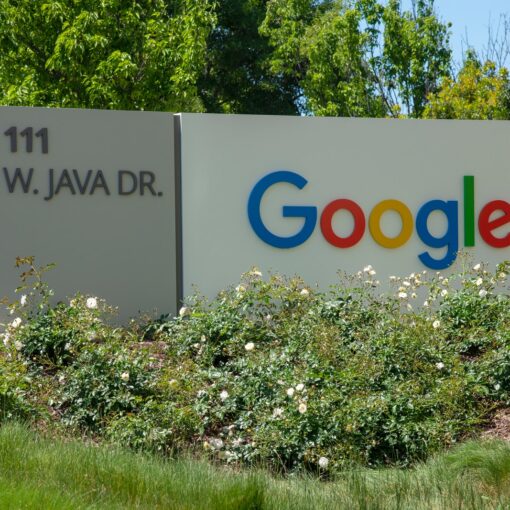 The Google Cup is half-full and not half-empty. As the search engine Google has grown and evolved over the last decade, its employees have become increasingly optimistic and confident in their company’s future. According to an internal study by the Academy of Management, “95% of Google employees agreed that they were happy for a number of reasons”. This is an astonishing statistic considering the industry-wide trend to grim outlooks following recessions.
The Google Cup is half-full and not half-empty. As the search engine Google has grown and evolved over the last decade, its employees have become increasingly optimistic and confident in their company’s future. According to an internal study by the Academy of Management, “95% of Google employees agreed that they were happy for a number of reasons”. This is an astonishing statistic considering the industry-wide trend to grim outlooks following recessions.
Contrary to popular belief, Google is not always accurate. Every now and then, they'll come up with a ‘smart' algorithm that is actually inaccurate. With the recent release of Google's new coffee cup emoji, it seems like they may be onto something. The cup is seen as half-full; an optimistic outlook on life, which is far more important than the pessimistic view of half-empty.
With the Google Cup in one hand and the World Cup in the other, it is hard to deny that this year has been a banner year for many. Beginning with the Women's World Cup in Canada, followed by events like Wimbledon, it appears that life has not forgotten about us. The last few months have offered hope to millions of people across the planet who are struggling with everything from terrorism to disease.
Two distinct events have occurred as a result of Google's periodic release of search algorithm modifications over the course of the last several years, each of which may be interpreted in a variety of ways. For starters, it seems that with each new release, more legitimate websites are unintentionally trapped in its quality control traps, which is annoying for the legitimate proprietors of these online places. Second, more spam pages have been caught as a result of this, which is a good thing in my opinion. As a consequence, website owners who have been negatively impacted by the modifications have expressed their dissatisfaction by referring to the situation as half-empty rather than half-full, which is a more accurate representation of what has really occurred.
The Cup is just half-full.
This has been the response of many people to the algorithm updates that have been made, each of which has changed Google's technique of searching just a little bit more than the one before it. Almost soon after the algorithms were modified, numerous websites were changed to reflect the alleged algorithm alterations – whether they were correct or incorrectly reported. Google makes updates and tweaks to its algorithms on a regular basis, with the goal of assisting existing users rather than harming them. But many people believe they have been “punished” and are skeptical that it will ever result in anything beneficial for their website.
Despite the natural tendency to express dissatisfaction when websites are affected, it is impossible for Google's changes to distinguish between truly poor quality websites that should be taken down and those that simply require some re-working in order to function better within the new Google guidelines. While this is a difficult situation for some, it is absolutely one that can be resolved.
The Cup is Half-Full at this Point
Another way of looking at all the Google algorithm changes is to accept the fact that, with each algorithm update, there will always be a risk of needing to make some changes in order to be in line with Google's main goal – fewer high-ranking, poor-quality websites that take ranking away from good websites – which should make the changes something that is worth the extra effort.
Higher search engine security catches some of the better sites off guard, but this may be considered as free input on changes that need to be done in order to maintain their well-recognized, valued, and high-quality status. People who choose to avoid developing a high-quality look and would rather do a get-rich-quick substandard one are frequently the ones that run all the many bad quality, spam websites, link farms, and anything else of a similar kind. Anyone in charge of a decent, worthwhile online presence should be prepared to go to whatever lengths are necessary to ensure that the site remains a valuable destination for internet users.
The alternative way to look at all of this is to say that less competition is less competition, regardless of how it is measured or perceived. More takedowns of low-quality websites, and the promotion of more useful, high-quality websites to their rightful places in search results, are all part of the present global internet marketplace's demands for increased effort.
If a website becomes “Google-proof” by staying up to date on current algorithm updates, optimization efforts will rise as a result of the overall enhanced quality, which will result in the website being noticed by a greater number of visitors. When this occurs, sites get an increase in natural backlinks, which increases the overall quality of the page, which is something that Google values. When high-ranking trash websites are eliminated from the search results, excellent online copies of these sites will be promoted to the top of the search results with no effort.
The moral of the tale is that website owners and administrators should be aware that anytime Google adjusts its algorithm, it is imperative that they stay up with the changes or risk losing their ranking authority altogether. Change does not necessarily have to be seen negatively, particularly when considering the several benefits that come with making a decent website even more appealing to search engines, as previously said. Once the task is over, the only thing that can be seen is the advantage, which is a much superior alternative than continuing to combat bad quality sites while using unconventional SEO techniques in order to outperform the high-quality competitors. So that cup is half-full, not half-empty, as you may have assumed.






